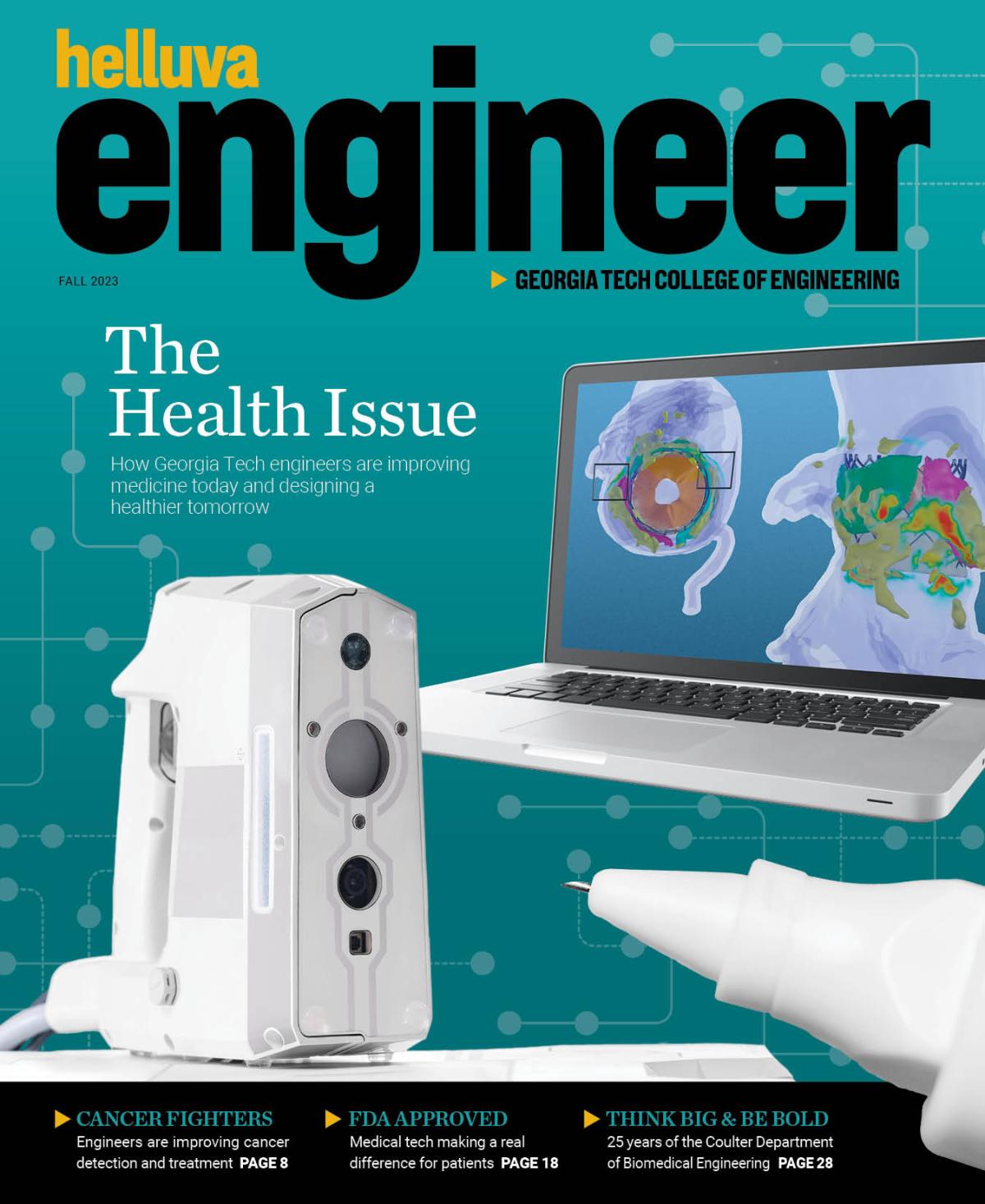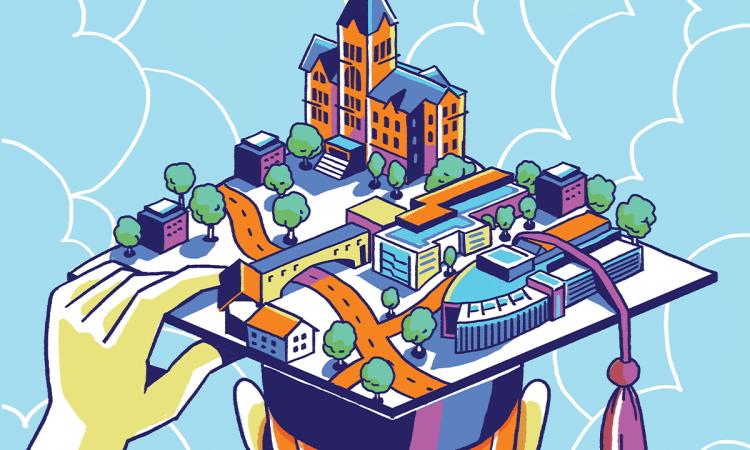Alumna Parika “Pinky” Petaipimol is inspired to persevere by people she’ll never meet.
(text and background only visible when logged in)
It’s an April night in Paris, and Parika “Pinky” Petaipimol is late for a meeting. She’s just stepped out of a train station in the City of Lights after taking the Chunnel from London. The taxi line is long, and the vehicles are slow to arrive.
After 20 minutes, Pinky is only halfway through the queue. Then a motorcycle pulls up and its driver asks for a single passenger. At least that’s what she infers, as no one is speaking English.
There are no takers, as the line is visibly uncomfortable about the possibility of riding with a stranger on the two-wheeled machine. A few minutes pass and the male motorcyclist asks again, “Taxi moto?”
Pinky evaluates the situation: The line snakes around the train station. The hour is growing late. She eyes the motorcycle and her bags and throws caution to the evening wind. She doesn’t know the language and will have to cut through the labyrinth of people before jumping onto the bike after strapping her luggage to the back. But she’s already hours late for a meeting and this is the best option. Plus, the Georgia Tech biomedical engineering graduate has learned a thing or two about problem solving and taking risks.
As those waiting watch in wonder and amusement, Pinky takes a selfie, then plays the equivalent of charades to ask if the French motorcyclist takes credit cards. He doesn’t understand, until she pulls out her wallet and shows a card. “Oh, oui!” he says, and they zoom off through the streets of Paris.
“You never know, right?” Pinky remembered a few months after the trip. “You never know where something unexpected will lead you.”
That night, it led her safely to a nearby hotel and her meeting. Other times, though, Pinky has been pleasantly surprised at where chance encounters with people have taken her, especially in the medical field. It’s also helped develop a mindset that those she’ll never meet have inspired her to persevere in the field.

Competitive to Collaborative
Pinky’s outgoing personality was a necessary part of her childhood. After attending elementary school in Duluth, Georgia, she moved overseas to Thailand for middle and high school. She had to make new friends in a new world, while adjusting to her new life.
Her family kept the Georgia house, allowing her to apply for in-state college tuition despite living 9,000 miles away from Atlanta.
“I qualified for the HOPE Scholarship because my parents paid Georgia taxes,” she said. “I was responsible for paying my own way, so I only applied to state universities.”
Pinky returned to Georgia in 1999 and enrolled at Tech as a biology student. She changed her major a year later when a new biomedical engineering department — now a national leader — started enrolling undergraduates.
“Only 40 people were chosen, so we were all a little cocky. And competitive. That first semester was very cutthroat,” Pinky said. “Google wasn’t really a thing yet, so we really had to think hard to work out solutions for problems by utilizing all our resources, like going to the library and actually checking out a book. Our solution was presented and compared to other groups. All the teams were critiqued by the professors.”
Pinky and her peers soon decided competition was pointless, and the class bonded and built strong bridges of collaboration as the first BME undergraduate class.
“I do appreciate the grittiness the program instilled in us. Things aren’t going to be perfect the first time, so you just need to learn from what happened and try again,” she said.
Pinky used that team-first mentality for her senior design project in 2004. She and her partner modeled a retroviral vector manufacturing process for gene therapy commercialization. The senior design project helped her get in the door with Biogen, a biotechnology company where she spent 14 years. She worked across the company, including in manufacturing sciences, technical business development, and new product commercialization.
Pinky with her husband, Chris, her mom, Add, and her children, Izzy and Greyson.
“I seized the opportunity as a training ground and went from one department to another to get as many skills as possible,” Pinky said.
She used tuition reimbursement to earn her MBA and a master’s degree in manufacturing engineering at Boston University. While pursuing her MBA, she was assigned to a team spinning out a company from the university. “I was surprised how much fun I had putting together a business plan and just talking to potential investors. The experience eventually led me to where I am now: working with a small company.”
Going Small
In 2018, Pinky had the opportunity to work at an early stage biotech startup called Pandion Therapeutics, overseeing the development and manufacture of a drug candidate to get it to its first clinical trial. She was the company’s 14th employee.
Pandion grew to 58 employees by 2021, had completed its first clinical trial, and was well on the way to starting another while advancing several other drug candidates in its pipeline.
Then in February 2021, Merck agreed to acquire Pandion Therapeutics for $1.85 billion. After her Pandion experience, Pinky was more interested in working for a smaller company instead of one as large as Merck.
One late summer day in 2021, one of Pinky’s mentors contacted her about an opportunity to join the startup the mentor was leading. Pinky would be employee No. 3. She’s now in her third year as head of technical operations with that company, Upstream Bio. She oversees a team of three employees as Upstream establishes the manufacturing, development, and supply chain processes for biologics used in inflammatory disease medicines.
“Being part of the founding team of a company is a once in a lifetime experience. It was crazy the first few months, because there were fewer than 10 of us and we were all chipping in — doing things like putting desks together and painting walls in the office.”
Patients First
What Pinky loves most about being at a small company, she said, is that she can help create its culture. One of Upstream’s core values is “Patient Focus,” which means putting the patient at the center of everything. It’s something she always keeps top of mind — a mindset she can track to her time at Georgia Tech.
As a student, one of Pinky’s classmates had a chronic condition that required weekly injections at the student health center to prevent the disease from spreading. Her friend praised the medicine and its benefits. She and Pinky connected about six months after graduation. That’s when Pinky learned that she was working at the same company that made the friend’s medication.
“It was my first project out of Georgia Tech,” Pinky said. “That conversation had such a profound effect on me. It personalized not just what I was doing every day but why I was doing it. Your actions can help a friend or even complete strangers. A lot of the time, it’s hard to keep that in mind when you’re in the lab, feeling like everything you do keeps on failing… or when you’re chasing funding that seems elusive. But you must remember that you can help people if you persevere. It’s that grittiness that will help you push through.”
Pinky recently joined the College of Engineering’s Advisory Board and is finding new ways to give back to Georgia Tech students. One of those ways is repeating to students again and again her message of keeping people first, even those you’ve yet to meet.
“I hope my example can inspire students, and even professors, to pursue their field of study with the goal of changing people’s lives for the better,” Pinky said. “People aren’t just patients. They’re fathers and mothers and siblings. They are somebody to someone. We can help them. Because everyone has a right to healthcare. Everyone needs healthcare.”
(text and background only visible when logged in)
Related Stories
Think Big and Be Bold
25 years after creating a powerhouse program between a public and private university, Georgia Tech and Emory’s biomedical engineering department looks ahead to its next chapter.

Helluva Engineer
This story originally appeared in the Fall 2023 issue of Helluva Engineer magazine.
With the top biomedical engineering program in the country, it’s only fitting that our rebooted College magazine focuses on health and medicine in our return issue. From cancer to anemia, synthetic biology to eye disease, Georgia Tech engineers are improving medicine today and designing a healthier tomorrow for us all.
